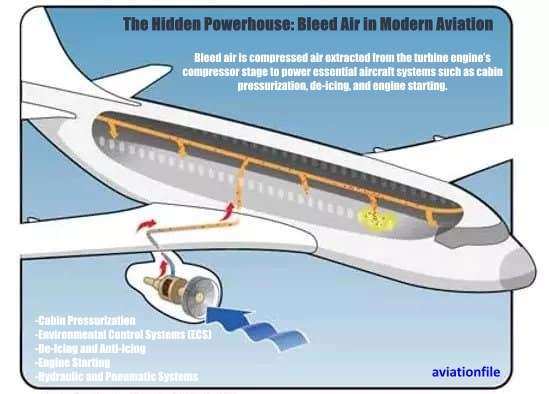What is an Environmental Control System (ECS) in Aircraft?
In the world of aviation, ensuring passenger comfort, crew efficiency, and optimal aircraft performance is critical. Among the advanced systems onboard, the Environmental Control System (ECS) plays a pivotal role. But what exactly is the ECS, and why is it so essential? Let’s dive into this integral component of modern aircraft.
Understanding the Environmental Control System (ECS)
The Environmental Control System (ECS) in aircraft is responsible for regulating and maintaining the environmental conditions inside the cabin and cockpit. It manages air supply, temperature control, cabin pressurization, and air filtration to provide a safe and comfortable atmosphere for passengers and crew during flight.
In essence, the ECS ensures that despite the harsh conditions outside the aircraft at high altitudes, the interior remains habitable and pleasant.
Key Functions of the ECS
- Air Supply and Conditioning
- The ECS sources air either from the engine bleed air (compressed air extracted from the aircraft’s engines) or, in some cases, from dedicated compressors in non-bleed systems.
- This air is conditioned—cooled, heated, and humidified—to ensure optimal cabin temperatures and comfort.
- Cabin Pressurization
- At cruising altitudes of 30,000 feet or more, the outside air pressure is too low for humans to survive. The ECS pressurizes the cabin to simulate conditions similar to those at 6,000–8,000 feet, making breathing easy and safe for passengers.
- Temperature Control
- Temperature in different sections of the aircraft can be independently controlled. This is particularly important for accommodating varying passenger preferences and ensuring sensitive equipment in the cockpit operates within safe temperature ranges.
- Air Filtration
- Modern ECS systems are equipped with advanced filtration systems, including HEPA (High-Efficiency Particulate Air) filters, which remove dust, bacteria, and other particulates, ensuring clean air circulation throughout the cabin.
- Humidity Management
- Aircraft cabins tend to have low humidity levels due to the high-altitude environment. The ECS helps mitigate dryness by regulating moisture levels to enhance passenger comfort.

Why is the ECS Important?
Passenger Comfort
The ECS provides a controlled and comfortable environment, essential for long-haul flights where passengers spend hours inside the cabin. Proper temperature, fresh air, and stable pressure contribute to a positive travel experience.
Crew Efficiency
Pilots and cabin crew rely on the ECS for maintaining a work environment conducive to safety and efficiency. Sudden pressure changes or discomfort can lead to fatigue, affecting performance.
Safety
In emergencies, such as a loss of cabin pressure, the ECS works alongside other systems to manage oxygen levels and maintain critical atmospheric conditions.
Types of ECS Designs
- Bleed Air Systems
- Traditional aircraft use bleed air from the engines for the ECS. While effective, these systems can be less fuel-efficient.
- Bleedless Systems
- Modern designs, such as those in the Boeing 787 Dreamliner, use electric compressors, offering better fuel efficiency and environmental benefits.
Challenges and Innovations in Environmental Control System
With the aviation industry emphasizing sustainability and efficiency, ECS designs are evolving:
- Energy Efficiency: Bleedless systems reduce fuel consumption and improve overall efficiency.
- Advanced Air Quality Systems: Enhanced filtration and UV disinfection systems are becoming standard, especially in the wake of global health concerns.
- Eco-Friendly Cooling Solutions: New technologies aim to minimize the environmental impact of cooling and pressurization processes.
Conclusion
The Environmental Control System (ECS) in aircraft is a testament to modern engineering, ensuring safety, comfort, and efficiency at 35,000 feet. From regulating air quality to maintaining a stable cabin environment, the ECS is indispensable to air travel.
As technology advances, the ECS continues to evolve, becoming more efficient and environmentally friendly, ensuring a brighter and more sustainable future for aviation.


